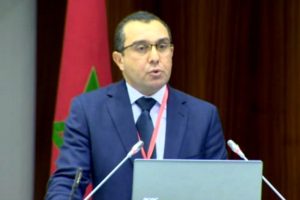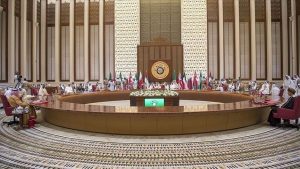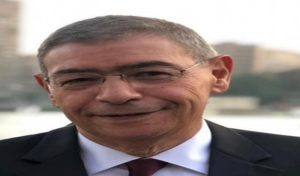Sudanese history books record Ismail al-Azhari as the first Prime Minister of Sudan, serving from 1954 to 1956, during the period leading to Sudan’s independence declared on January 1, 1956. Since the transitional government he led, over the past 69 years, more than 90 central and state governments have ruled Sudan, with no official statistics on their exact number.
Every Prime Minister in Sudan’s history has filled the airwaves with grand statements and empty promises. Leaders who shone in their rhetoric and pledges sparked controversy and anger among citizens in the 1960s and 70s, who noticed a stark contrast between promises and actions. Over time, with many leaders emerging, the public became accustomed to a culture of lies and deception, seeing each Prime Minister follow the footsteps of predecessors with insincere statements and shameless lies.
The above serves as an introduction to the provocative statement made by Prime Minister Kamel Idris, who claimed that “Omdurman city has become safer than Paris”!! However, it seems Kamel does not follow Sudanese newspapers and websites that consistently report the severe security breakdown sweeping the country from end to end. Despite the destruction in Khartoum, the capital wakes and sleeps amid nonstop crimes day and night, and tens of thousands of residents living in various Khartoum areas are uncertain if they will witness a hopeful new dawn.
To Prime Minister Kamel, I dedicate an article published by “Al-Tayyar” newspaper, a recent piece dated August 11, 2025, to inform him of the reality around him: “Khartoum… The Capital of Fear and Armed Looting” – Khartoum, once vibrant before the war, is slowly turning into a fragmented city inhabited by fear, with the state absent. The collapsed security situation has revealed new groups of looters, including civilian gangs formed during the war from criminals escaped from prisons, alongside groups wearing official uniforms but belonging to no known authority. According to reliable reports from human rights organizations, violations against civilians in Khartoum continued even after the Rapid Support Forces withdrew, suggesting they are carried out from within the regular military institution itself.
A report by the Sudanese Alliance for Rights (SAR) in April 2025 documented dozens of cases where soldiers in official Sudanese Armed Forces uniforms committed violations in areas like Al-Kalakla, Al-Sahafa, and Al-Hattana. These violations included home invasions, looting, and terrorizing residents, often in broad daylight without any resistance or official intervention. Human Rights Watch’s annual report also noted an increase in looting in areas entered by the army following the Rapid Support Forces’ withdrawal. Testimonies from residents of Omdurman and Khartoum confirmed that army soldiers participated in looting private property and raiding empty homes. Many expressed frustration over the absence of accountability within the military institution, indicating complicity or at least “institutional silence.” Alongside these reports, daily testimonies from Sudanese citizens on social media platforms like Reddit document repeated looting incidents by army soldiers in East Nile and Omdurman neighborhoods.
One citizen said: after the Rapid Support Forces left, we thought we would finally rest, but army members entered homes, searched them, took furniture and gold, claiming it was a routine procedure. This reality makes it difficult to distinguish between those supposed to protect and those committing violations, especially amid the collapse of central authority, multiple armed groups, and the mixing of official uniforms with civilian gangs. The Sudanese Media Forum and its member institutions publish this material prepared by Al-Tayyar newspaper to reflect the deteriorating security situation and the high cost paid by Khartoum citizens even after the cessation of military operations between the army and Rapid Support Forces, noting the complete absence of police and prosecution elements, which eliminates any legal recourse.
Those who closely follow the history of Sudan’s heads of government find that Sadiq al-Mahdi and Bakri Hassan Saleh were the most failed Prime Ministers, with the June 1989 coup attributed to Sadiq’s weak personality and inability to control the security chaos. Today, we hope Kamel Idris does not follow in their footsteps or fall into military rule, and that he stops making false statements and empty promises. He should know he is under strong public scrutiny, and no one will allow him to falter or neglect his duties, foremost among them restoring security and safety across the country, not just in Khartoum, which he claimed is “safer than Paris.” I hope he apologizes for his foolish statement. Note, Kamel: the safe Paris still welcomes refugees fleeing their miserable countries.













Recommended for you
Talib Al-Rifai Chronicles Kuwaiti Art Heritage in "Doukhi.. Tasaseem Al-Saba"
Exhibition City Completes About 80% of Preparations for the Damascus International Fair Launch
Unified Admission Applications Start Tuesday with 640 Students to be Accepted in Medicine
Egypt Post: We Have Over 10 Million Customers in Savings Accounts and Offer Daily, Monthly, and Annual Returns
His Highness Sheikh Isa bin Salman bin Hamad Al Khalifa Receives the United States Ambassador to the Kingdom of Bahrain
Al-Jaghbeer: The Industrial Sector Leads Economic Growth